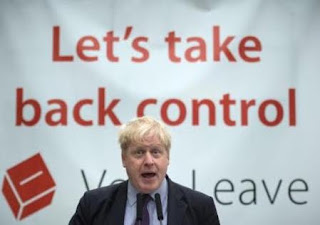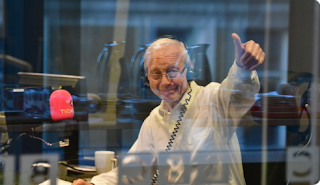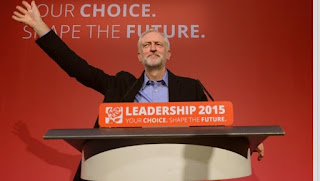Dominic Ponsford on Press Gazette: "The Daily Mail has claimed victory in a 42-year circulation war with The Sun. The paper said it has overtaken The Sun’s monthly print circulation for the first time in that period to become the UK’s best selling daily newspaper."
The Mail on Sunday: "It’s a moment of newspaper – and social – history. Officially audited figures show that in May, The Mail on Sunday surged past The Sun to become Britain’s biggest-selling Sunday newspaper. It’s the first time a mid-market newspaper has been the market leader on a Sunday since Queen Victoria’s reign – a profound cultural shift...In this frightening new era of intolerance, the MoS has become a beacon for those who believe in free speech and who refuse to be cowed by the tyranny of the Twitter mob and hard-Left agitators who believe everyone should be forced to think like them."
BBC News presenter Clive Myrie, interviewed by the Guardian: “I could count on the fingers of one hand the amount of racist abuse that I received from when I started in journalism in 1988 through to about 2008, though there was a guy in the early 90s who would send faeces in the post. But it has picked up in the last decade and become incredibly more prevalent in the last few years. Why has that happened? I don’t know.”
An open letter to the Society of Editors from 50 BAME journalists: "We request you to consider positive recruitment campaigns from ethnic communities across Britain with a declared commitment; properly paid traineeships for BAME youngsters with adequate mentoring and equal promotion and pay for BAME staff already in newsrooms. A good start would be regular reviews of diversity in newsrooms and for an initial assessment and publication of current BAME representations in news organisations. We call upon the Society of Editors to urge its members to use this period of reflection to re-evaluate and reform past practices and move forward with a totally skilled workforce with appropriate BAME representation. Let’s all get the whole story."
Bristol Post editor Mike Norton in an editorial on why the paper won't carry police pictures of those alleged to have pulled down the statue of slave owner Edward Colston: "We think the majority of Bristolians accept that the years of frustration and offence at the statue’s existence mitigate what happened two weeks ago. That is why the Bristol Post or Bristol Live will not publishing the police photographs. We are not criticising the police and - unlike the council - have no influence over whether or not those responsible should be sought. But we do not agree that the actions of those young people should be reduced to a simple act of criminal damage which ignores the complex context and history around it."
Donald Trump campaign manager Brad Parscale on coverage for the poor turnout at the Tulsa rally, reported by the Guardian: “For the media to now celebrate the fear that they helped create is disgusting, but typical and it makes us wonder why we bother credentialing media for events when they don’t do their full jobs as professionals.”

Eliot Higgins on Twitter: "In case you missed it overnight, the President of the United States tweeted a faked CNN video, literally fake news, to attack CNN for being fake news, and to warn people to look out for fake news. The brain worms must have been particularly hungry."
Big Issue editor Paul McNamee on Twitter on The Impartial Reporter's Rodney Edwards: "An incredibly worthy winner. Brilliant reporting of a very dark story. Rodney is one of best, most naturally born reporters I've ever met. He is evidence of why a vibrant local press is essential. More power to him."
journalismtips on Twitter: "Newsquest is now planning to take on school leavers as apprentices. Is this a good or bad thing for the industry? On the one hand there are many graduates who can’t string a sentence together; on the other much much cheaper reporters."
John Humphrys in the Daily Mail: "Magistrates’ courts in small towns are where journalists’ careers were forged back in the heyday of the local paper. It’s where you learned the only thing that mattered was getting it right. Especially names. Spell a name incorrectly and you were dead meat."
David Quantick on Twitter: "There's a certain style of Bob Dylan review where the reviewer seems to think they are Bob Dylan."
Alan Hawkes in a letter to The Times [£]: "Sir, There were several articles in Saturday’s comment section (Jun 20) with which I profoundly disagreed. Keep up the good work."
[£]=paywall


























































